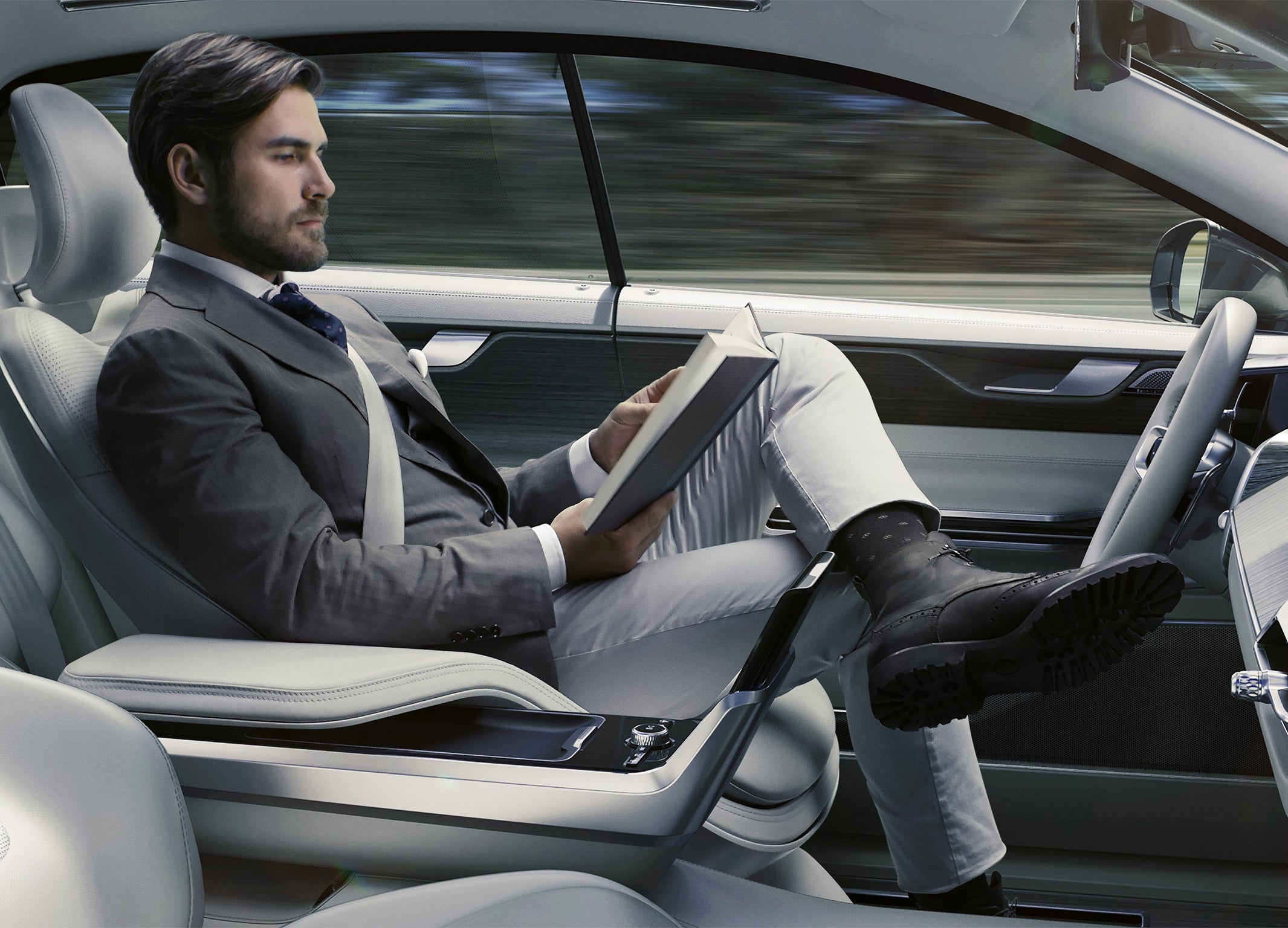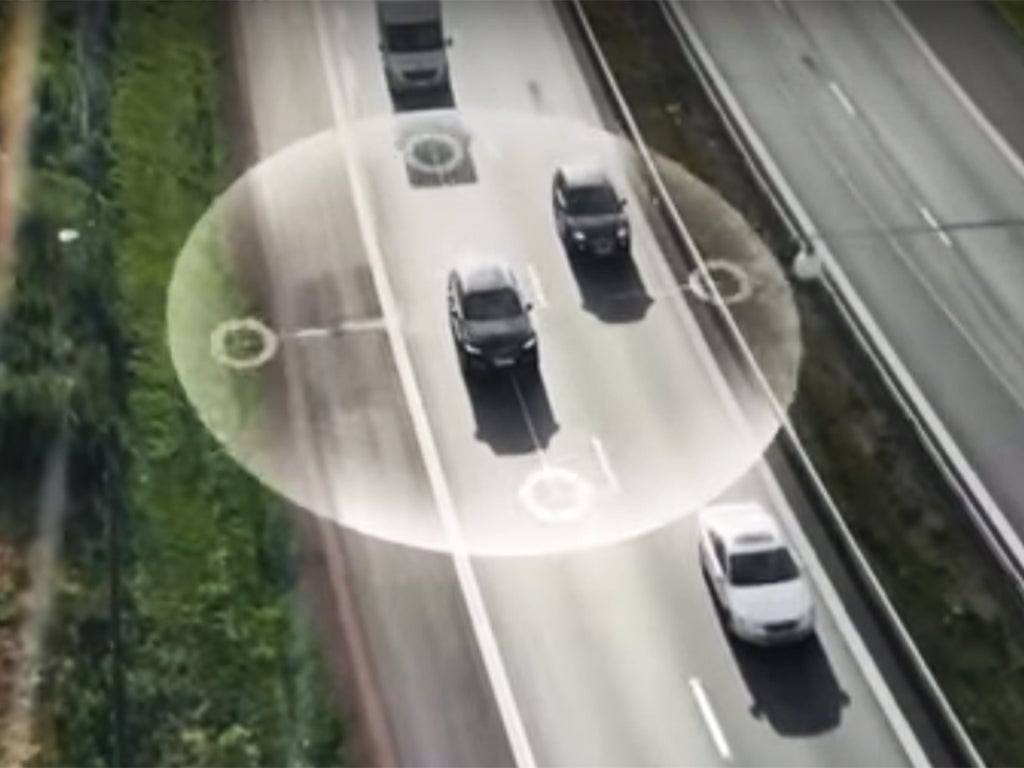Ministers pledge to put Britain at heart of driverless car revolution ahead of landmark trials
Volvo has confirmed that London will be the site of the ‘most ambitious’ trial yet next year

Your support helps us to tell the story
From reproductive rights to climate change to Big Tech, The Independent is on the ground when the story is developing. Whether it's investigating the financials of Elon Musk's pro-Trump PAC or producing our latest documentary, 'The A Word', which shines a light on the American women fighting for reproductive rights, we know how important it is to parse out the facts from the messaging.
At such a critical moment in US history, we need reporters on the ground. Your donation allows us to keep sending journalists to speak to both sides of the story.
The Independent is trusted by Americans across the entire political spectrum. And unlike many other quality news outlets, we choose not to lock Americans out of our reporting and analysis with paywalls. We believe quality journalism should be available to everyone, paid for by those who can afford it.
Your support makes all the difference.Britain will be at the heart of a driverless car revolution, Government ministers have pledged, ahead of landmark trials due to begin later this year.
Around £100m in funding has already been set aside for research into the area, and ministers have also put forward plans for using digital address data as the foundation of an embryonic driverless car network.
Volvo confirmed last week that London would next year be the site of the most ambitious driverless car trial yet. Meanwhile, the Department for Business, Innovation and Skills is directly funding three trials taking place this year, in Bristol, Coventry and Milton Keyes, and Greenwich in London. The Milton Keynes trial, which uses small, personal pods in the town’s pedestrianised areas, is already in its early stages.
Ministers see driverless cars as a significant area of potential growth for the UK manufacturing sector and also want to capitalise on the emergent technology’s capacity to cut congestion and deliver cleaner transport.
Twenty-two different research projects were granted a share of £20m in government funding in February to develop communication systems between cars and urban infrastructure. With safety concerns paramount, ministers and industry leaders will be closely watching the upcoming trials to gauge how soon driverless technology could be introduced to British streets. A further trial of driverless lorry “platoons” is also due later this year.

Development in the area is not only confined to new car technology. Cabinet Office minister, Matthew Hancock, last week told a technology conference he wanted companies, public sector organisations and others to have greater access to digital mapping technology that uses digital addresses rather than postcodes.
So-called unique property reference numbers (UPRNs) – a kind of digital postcode for every address in the country – are already in use by some public bodies, but Mr Hancock said their was huge potential if the data was made more widely available.
“As we look to the future – if we want to live in smarter cities and smarter homes – then we need to exploit the benefits of precise interconnected data. It is difficult to imagine a world of driverless cars, of drone delivery, and truly integrated public services, without realising the benefits of high quality, precise data,” he said in a speech to the Geoplace, a subdivision of the Ordnance Survey and Local Government Association dedicated to digital mapping.
Roads Minister, Andrew Jones, said driverless car technology had the potential to “transform road transport around the world”.
“We want Britain to be at the forefront of this revolution,” he told The Independent. “It can deliver safer roads, cut congestion and give people who currently find travel difficult the freedom to get around.
“It is easy for car companies to test this new technology on our roads, we are funding driverless vehicle trials in four cities and have announced plans to test lorry platoons later this year.”
The government-funded Traveller Needs Study survey of attitudes found that only 39 per cent of the public say they are prepared to use a driverless car today. However, the figure increases to 60 per cent among young, urban professionals.
Join our commenting forum
Join thought-provoking conversations, follow other Independent readers and see their replies
Comments